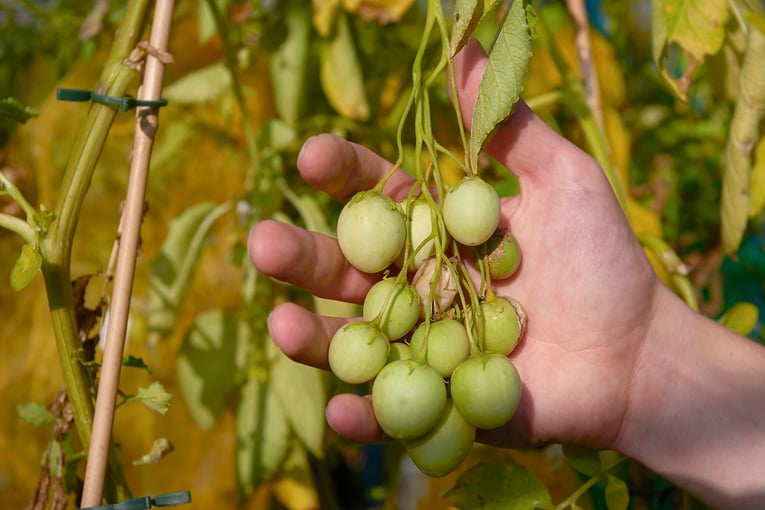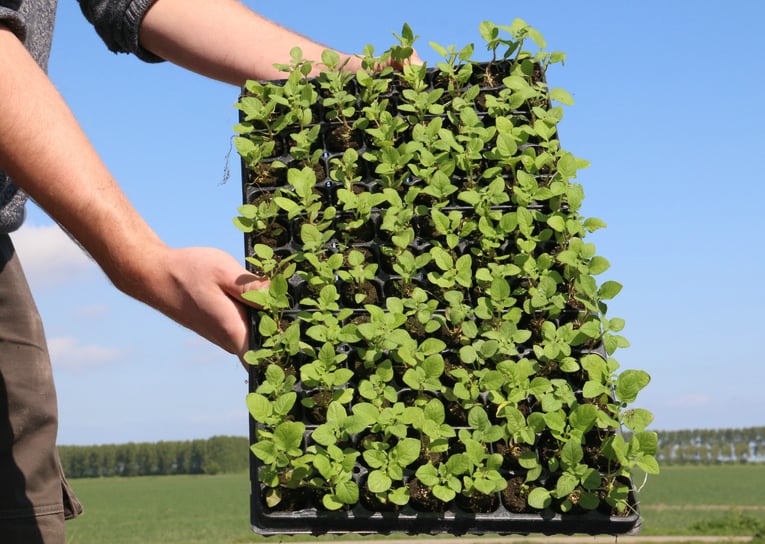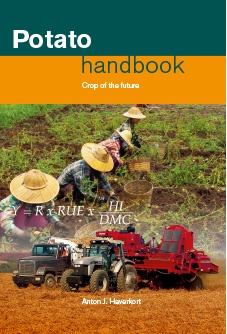
In Chapter three of the Potato Handbook, the propagation material of the potato plant is discussed. When True Potato Seed (TPS) is used as propagation material, it has the advantage that the usual seed tuber-borne pests and diseases such as fungi, bacteria, viruses and nematodes are not transmitted. TPS may be derived from open pollination by simply collecting berries from the field, or by making crosses and using this seed to produce tubers from the seedlings or by creating F1 hybrids by crossing two inbred parents.
Open pollination has taken place in the past where no seed potatoes were produced, for example in the Great Lakes Region in Africa, or in China during the Cultural Revolution. After independence of African countries the seed lots degenerated fast. By accident berries were formed that contained seed. These produced seedlings yielding healthy tubers. These tubers when used as seed, although they suffered from an inbreeding depression, still competed with or outcompeted the degenerated conventional seed. After many years the original European varieties virtually disappeared and were replaced by this kind of land races.
Extensive research
The International Potato Center (CIP) during the last quarter of the 20th century carried out extensive research on producing seeds through crosses yielding a relatively homogeneous progeny that as seed potato could be multiplied a few times. CIP at that time showed in its annual report a small boy sitting on a big pile of two tons and held a small ‘equivalent’ jar containing TPS.

Berries (shown in the picture at the beginning of this blog) from a cross of two inbred lines produce the seed to raise seedlings in trays.
Want to read more on the perspectives for TPS?
Find it in Chapter 3 of our Potato handbook, a global Potato University in 1 book!
Buy your copy today and get a one-year free subscription to PotatoWorld magazine.

